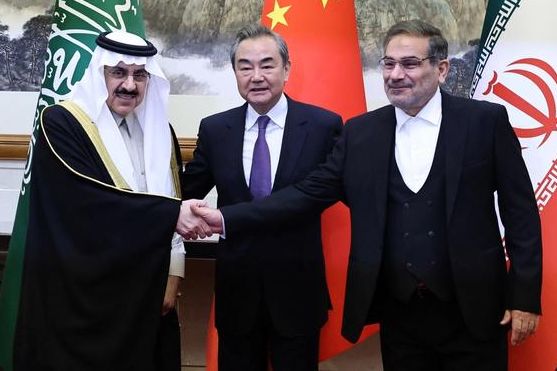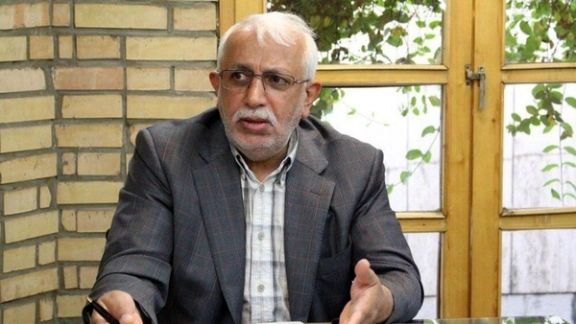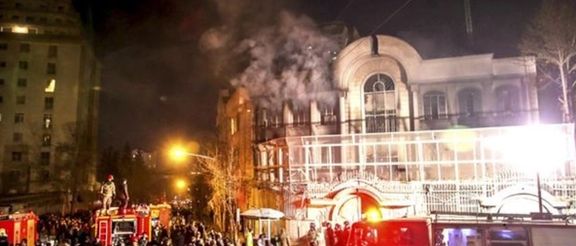Tehran Pundits Say Iran-Saudi Ties Not An Ideological Alliance

Iranian media commentators are still discussing the implications of the Iran-Saudi restoration of relations on Iran’s foreign and even domestic policies.

Iranian media commentators are still discussing the implications of the Iran-Saudi restoration of relations on Iran’s foreign and even domestic policies.
Middle east expert Ghasem Mohebali told moderate conservative news website Khabar Online on April 18 that the agreement does not mean disputes between Tehran and Riyadh have been settled. The effectiveness of the agreement will be tested only after the two countries' embassies reopen in May after seven years.
In the meantime, Iran's President Ebrahim Raisi has welcomed an invitation to visit Riyadh and has on his part invited King Salman to visit Iran, which is yet another sign to indicate willingness of both sides for détente.
Mohebali says the Tehran-Riyadh agreement only shows that relations are back on track for normalization. The two sides, he said, have many differences. The conflict in Yemen is only one of them. The two countries also have their differences over Iraq, Syria, Lebanon and the Persian Gulf, and, of course, Iran's nuclear program. They also need to discuss their regional rivalries in a way to prevent further tensions in the future.

Both Iran and Saudi Arabia can help establish a stable government in Yemen, the Iranian analyst said. As regards Syria, Saudi Arabia needs to bring back Damascus to the Arab League. The impact of this return on the region is also important. And then we need to see what happens to foreign forces in Syria.
Mohebali said the issue of Bahrain is also one of the main challenges facing Iran and Saudi Arabia, with the latter concerned about Iran's influence over Shias in the small kingdom and its interference in that country. Bahrain is next door to Saudi Arabia and developments there affect its security.
However, the two countries have also some shared interests in the areas of oil, energy and security. These can be the topics of the next round of talks between Tehran and Riyadh.
Mohebali added that the revival of ties will also impact regional countries' attempts to settle the post-Arab Spring problems. For all of those countries security is the most important issue. The region's security is also equally important for the United States, Europe and China.

Meanwhile, according to a report published on the moderate Entekhab news website, many questions have been raised about the impact of the Iran-Saudi deal on Iran's foreign policy. How it will affect Iran's other international dossiers including the revival of the 2015 nuclear deal, the JCPOA. The rapprochement can affect Iran’s key foreign policy issues in two different ways, the report said.
The first possibility is rationality extending to other matters in the regime's decision-making system, and leading to major steps toward settling the nuclear issue, negotiations with the United States, and even reaching détente. This is a desirable scenario that could put Tehran back on the right track and even lead to an improvement in governance and restoring the broken ties between the regime and the people.
This is possible only if the regime follows a realistic approach based on national interests. It will mark a serious change in Iran's approach to domestic and international issues.
The other scenario, which is probably more likely within the Iranian government is to interpret the ties with Saudi Arabia within an unrealistic framework. The advocates of this scenario will interpret the restoration of ties based on their own ideological points of reference, and as they have done so far, reiterate that Iran has imposed its will on Saudi Arabia and see the whole dynamics as Riyadh's alliance with Tehran against the United States. They might even think that Iran no longer needs to return to the JCPOA. According to Entekhab, this would be yet another miscalculation by the Iranian regime.
In other words, while Saudi Arabia uses the rapprochement with Iran as part of its strategy of moving toward sustainable development in the digital age by reducing unnecessary regional tensions, Tehran might mistake the restoration of ties with Riyadh for an ideological alliance.